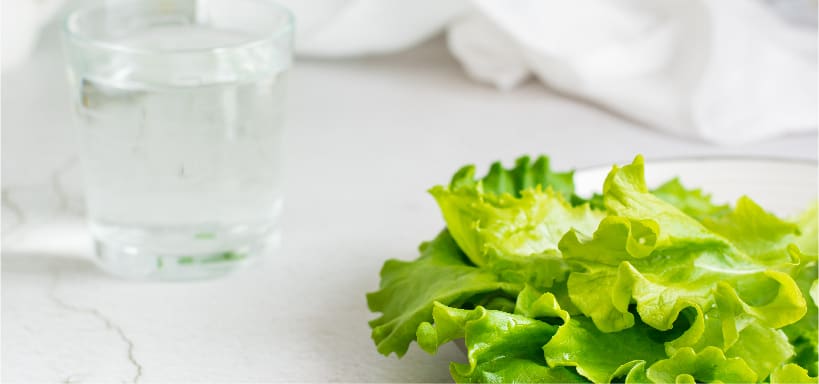This Dr. Axe content is medically reviewed or fact checked to ensure factually accurate information.
With strict editorial sourcing guidelines, we only link to academic research institutions, reputable media sites and, when research is available, medically peer-reviewed studies. Note that the numbers in parentheses (1, 2, etc.) are clickable links to these studies.
The information in our articles is NOT intended to replace a one-on-one relationship with a qualified health care professional and is not intended as medical advice.
This article is based on scientific evidence, written by experts and fact checked by our trained editorial staff. Note that the numbers in parentheses (1, 2, etc.) are clickable links to medically peer-reviewed studies.
Our team includes licensed nutritionists and dietitians, certified health education specialists, as well as certified strength and conditioning specialists, personal trainers and corrective exercise specialists. Our team aims to be not only thorough with its research, but also objective and unbiased.
The information in our articles is NOT intended to replace a one-on-one relationship with a qualified health care professional and is not intended as medical advice.
Does Lettuce Water for Sleep Really Work?
April 6, 2022

First, celery juice became a trend for its potential digestive benefits. Now lettuce water is the new craze.
What is lettuce water good for, if anything?
Lettuces — whether romaine, iceberg, red lettuce or less common types — contain compounds that are known to have anti-inflammatory effects. In fact, lettuce seed oil (made from Lactuca sativa species) has long been used as a natural health remedy and sleep aid in places including Korea and Iran.
Chomping on salads filled with different lettuces can definitely support your health, but will lettuce water (basically herbal tea made from steeping lettuce leaves) help you sleep more soundly? Let’s find out what the research says.
Lettuce Water for Sleep: Does It Work?
Does lettuce water really make you sleep? It’s possible it might help, but overall this method lacks compelling scientific evidence.
Within some types of leaves, especially romaine lettuce, there are phytochemical compounds present, including lactucin, lactucopicrin, triterpenoids, saponins and others. Researchers believe these nutrients have some analgesic (pain-relieving) and calming effects, but it’s debatable how influential they are.
For example, a 2017 animal study did find certain sesquiterpene lactones present in romaine lettuce, including lactucin and polyphenols, that are thought to have sedative and relaxing effects. However, the study used lettuce extracts taken from romaine and other types of lettuce leaves and seeds, not regular lettuce water.
In this study, fresh lettuce was trimmed, washed, dried to make powder, stored at 5 degrees C and then extracted twice with 70% ethanol. You can see how this is a very different process than boiling lettuce leaves at home.
The amount of phytochemicals in cooked or fresh lettuce leaves, and their water, is likely not high enough to have a big impact on your mood or sleep. This doesn’t mean it’s harmful to try — it’s just unlikely to make a big difference in how fast you fall asleep or how well you stay sleeping through the night.
Should You Try It?
Even if eating lettuce or drinking lettuce water isn’t necessarily a natural sleep aid, leafy greens and lettuces still offer body-wide benefits. This means you can feel free to drink lettuce water if you’d like — just keep in mind that other sleep aids may be more effective. (See below for suggestions.)
On a positive note, some people simply find warm beverages (which can include hot lettuce water) to be soothing, explaining why some herbal teas can be helpful when you’re feeling sick, anxious or sad. Another possible explanation is the placebo affect, meaning that people might feel calmer when drinking lettuce water simply because they expect to.
How do you make lettuce water?
The study mentioned above found that romaine lettuce contains the highest levels of phytonutrients that are thought to have sedative effects.
Ideally, wash a few leaves of organic romaine, place them in a cup, cover with very hot water, let it steep for at least five to 10 minutes, and then take the leaves out and drink the water.
If you’d like, add some fresh lemon juice, raw honey (for flavor, although heating honey does sap it of some of its benefits) or herbal tea, such as peppermint tea, for extra flavor. You can drink lettuce water several times per day if you’d like, just like you would herbal tea or celery juice.
Other Lettuce Water Benefits
As mentioned above, lettuce water is still hydrating; almost free of calories, carbs and sugar; and a great substitute for sugary beverages.
It contains small amounts of phytonutrients that may help fight inflammation and oxidative stress, although you’d have to drink a lot of it to have any drastic effects on your health. Its anti-inflammatory nutrients are beneficial for protecting tissues and cells from damage.
Of course, you can benefit from lettuce’s nutrients by eating the green in salad instead. This may have even more benefits, since it provides fiber and fills you up more than drinking lettuce water.
Aside from impacting sleep, lettuce/lettuce water benefits can include:
- Keeping you hydrated (although you don’t want to drink too much close to bedtime, which can cause urination)
- Helping with digestion and detoxification
- Potentially helping to reduce symptoms like acid reflux that might disrupt your sleep
- Providing free radical-scavenging activity against oxidative stress and inflammation
Risks and Side Effects
Is it safe to drink lettuce water? In most cases, yes.
It’s wise to use organic lettuce since lettuce tends to be sprayed with high levels of pesticides. You don’t want to wind up having these chemicals leach into the water you’re drinking, so choose organic greens, and rinse them well before steeping or eating them.
Other Ways to Aid Sleep
If you’re struggling to get good sleep, a healthy diet that includes lots of different greens and veggies, plus other water/fluids, can likely help. Here are other tips for getting a good night’s sleep:
- One of the best-known sleep aids is avoiding blue light and electronics close to bedtime, since this type of light can make you alert and prevent drowsiness.
- Keep the environment in your home comfortable and calming at night. Use dim, soft light, and make the temperature low when you head to sleep.
- During the day, get some sunlight exposure and exercise to help regulate your circadian rhythm.
- Try adaptogens and other herbs that have calming effects, such as ashwagandha, valerian root, St. John’s wort, skullcap, kava and passionflower.
- Melatonin supplements are another option to experiment with short term, but be careful not to overuse melatonin.
- Magnesium supplements can aid in digestion and reduce muscle tension, which might help you rest more easily.
- Diffusing lavender essential oil in your home can help you unwind.
- Finally, incorporate relaxing activities like meditation, yoga, journaling, reading or taking a warm bath or shower into your evening routine.
Conclusion
- Lettuces (especially romaine) contain nutrients including lactucin and lacucopicrin that are known to be sleep-inducing compounds.
- That said, these are present in lettuce seed oil but not very concentrated in homemade lettuce water/tea.
- You can still try this remedy for other lettuce water benefits, such as help with digestion and hydration.





